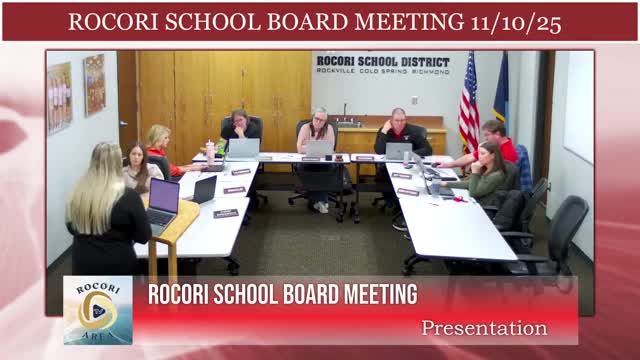ROCORI board approves preschool changes after debate on transport, fees and alignment
Get AI-powered insights, summaries, and transcripts
Subscribe
Summary
The ROCORI Public School District board voted to approve proposed changes to its preschool program after debate about transportation costs, fee adjustments and aligning preschool through third grade to improve kindergarten readiness.
The ROCORI Public School District board voted to approve proposed changes to the district’s preschool program after discussion about transportation costs, fee adjustments and program alignment.
Speaker 1, a preschool program lead, told the board that the district’s preschool already embeds SNAP services and that the major outstanding issue with the plan was transportation, which “is very pricey for us” and draws on the preschool fund. Speaker 1 said the district would consider not offering midday transportation for the spring but would continue to transfer special education students (funded from a different source). Speaker 1 also outlined four transit options for families: Tri-Gap public transit, parent-led transportation, special transportation and bus buddies (older students escorting preschoolers on regular routes).
Board members pressed for clarity about the proposed fee changes and the program’s financial sustainability. Speaker 2 asked for specific numbers and for context showing how long it had been since fees last increased; participants mentioned a $30/month figure and smaller monthly adjustments in the conversation but speakers also used differing phrasings during discussion. Speaker 3 said the upcoming audit and budget review will show deficit spending in several programs and that the district must balance revenue and expenses to avoid moving funds from other programming.
Administrators framed the change as part of a broader effort to streamline P–3 curriculum and assessment so the preschool experience more closely aligns with kindergarten expectations. Speaker 1 said inconsistent attendance and widely varying hours among preschool children make it difficult to measure readiness; a more consistent schedule would let teachers better assess growth and ensure curriculum alignment.
Board members also asked about classroom capacity and future childcare additions. Speaker 6 asked what would happen to a 4-year-old classroom if a section were moved; Speaker 1 said available space would absorb students so classes would be near capacity. The board discussed exploring infant care over the next two to three years to support staff and address local daycare shortages.
Implementation and oversight: Speaker 2 requested projected financials showing the first-year impact of the approved changes so the board can judge whether the program meets its objectives a year after implementation.
Action: At SEG 301–313 the board took a motion to approve the changes (recorded as “motion by Lynn, second by Robin”); following the vote (multiple recorded “Aye”s) Speaker 2 announced: “So the changes are approved.”
